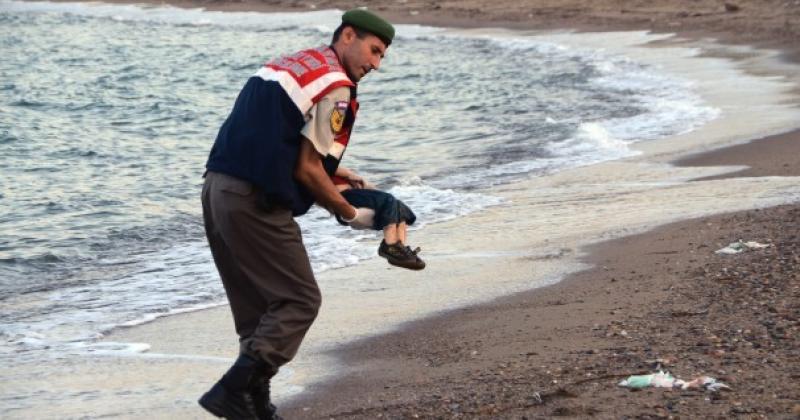The death of a child from a sinking boat off the Turkish coast has moved the whole world, but lest we forget, thousands more have already died in Syria’s war. The refugee problem must be addressed but so do the causes that have led to this tragedy, namely Mideast wars, funding the Islamic State group, and proxies acting on behalf of regional and world powers.
Like others, we too mourn the death of the three-year-old boy who drowned with his younger brother during an attempt to cross from Turkey into Greece, his body stranded on a beach in Bodrum, where other people normally play, swim and sunbathe.
We too, with a heavy heart and a lot of shame, watch the thousands of Syrians stranded in a Budapest station, a scene we have seen before, during World War 2, whose end we just celebrated, triumphantly, without any sense of guilt on both the winning and losing sides.
As PIME missionaries, we too have made available our house in Sotto il Monte (Italy), near Pope John XXIII’s birthplace, to scores of refugees who have crossed the Mediterranean Sea. We to mourn the death of thousands who drowned during the risky voyage.
However, shedding tears for the dead, opening one’s heart and home to refugees, putting pressure on the European Union to change its asylum rules may be all fine and dandy. They may appease our feelings, but they are not enough to appease our conscience nor mollify our intelligence.
Apparently, the little boy, Aylan, came from Kobane, a Syrian Kurdish town near the border with Turkey. For months, Islamic State forces besieged it to create a corridor between the territory they hold in Syria and Turkey from where they can bring in new recruits and smuggle out contraband oil.
Turkish soldiers pushed back refugees like Aylan’s family when they wanted to escape from Kobane. Turkey itself stopped Iraqi Peshmerga from helping fellow Kurds in defending the city.
What is the point then of weeping for Aylan if we failed to weep for Kobane and Turkey’s collusion with the Islamic State group?
What is the point of weeping for the thousands of refugees holding out at a Budapest railway station, and not realize that most are Syrians and that they are in Europe because of the wars waged by the Islamic State group, international Jihadi militias, but also Western governments that sought first and foremost Bashar al Assad’s fall?
What is the point of weeping for those who perish in the Mediterranean Sea, or slamming people smugglers, without acknowledging that the West contributed to the problem by undermining the disquieting balance maintained by Qaddafi?
Let us take in the refugees, let us change the rules of the Dublin Convention, but let us also deal with the root causes behind their tragedy. The causes are in the Middle East, a region that is adrift, partly because of Western action (Afghanistan, Iraq, Syria, etc.), extremist groups militarily supplied and financially sponsored by regional powers (Turkey, Qatar, Saudi Arabia, the Emirates, etc.), and great powers who, rather than build peace, prefer to confront each other via proxies (Syria, Iran, or Saudi Arabia).
It is high time for Mideast governments to stop funding the Islamic State group, for peace to be negotiated in Syria and Yemen, for the United Nations Security Council to do the job it was set up for, for the world to work for peace among the nations, and not for one’s supremacy over others.
"Enough!” wrote some newspapers with regards to the pictures of the little boy, Aylan, lying on the beach. My sentiments too, and the sooner, the better. Yet, what about the other tens of thousands of children who died in the past four years of war in Syria? What about those who died in Iraq?
If nothing is done to deal with the underlying causes that led to these deaths, expressing sorrow for refugees in Europe will simply come across as a way of evading one's responsibility in the world.
Meanwhile, as the Middle East powder keg keeps on ticking, there is a major risk that any explosion will not generate 200,000 refugees, but 100 million. And if the Middle East blows up, neither Europe, nor the world can be saved.
